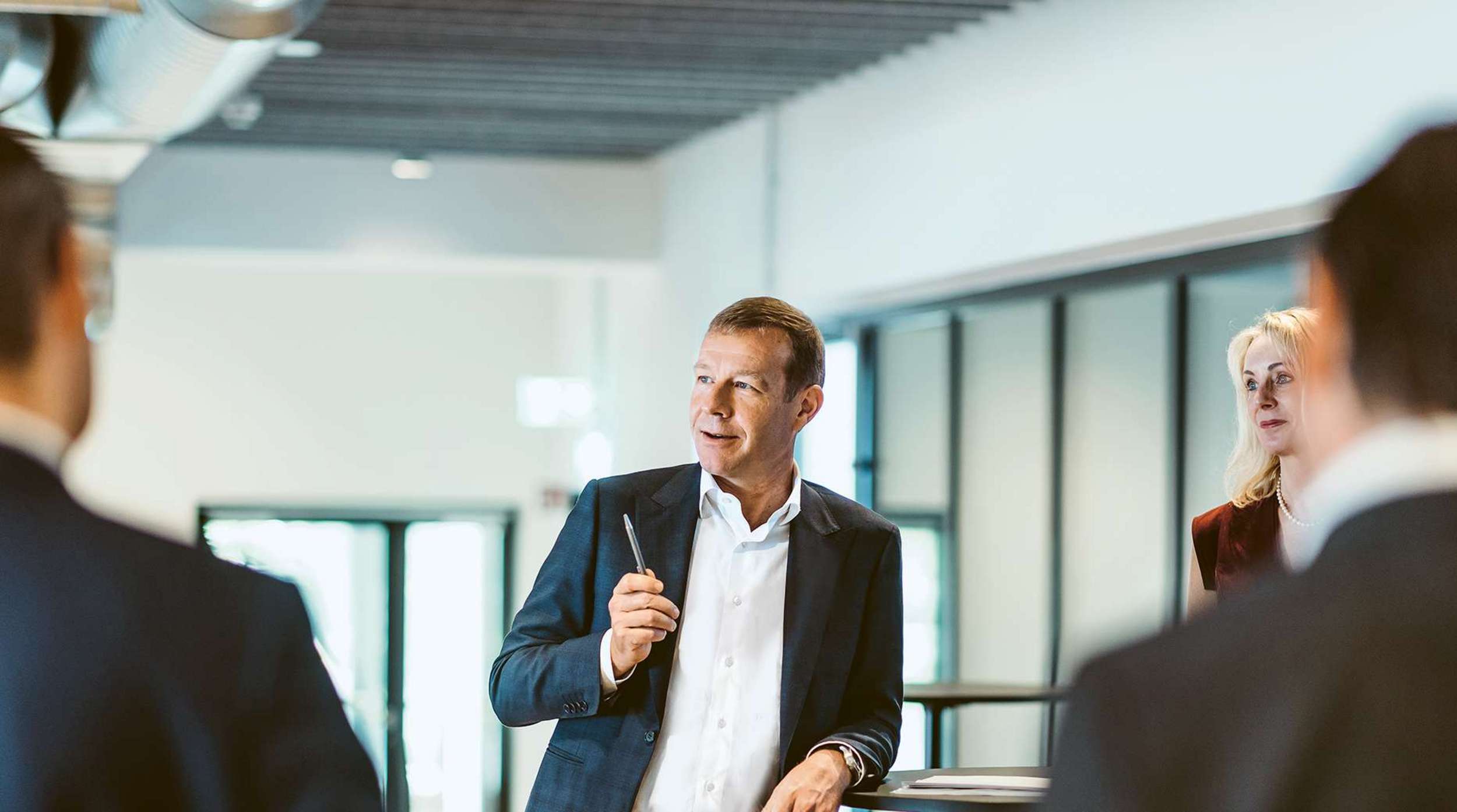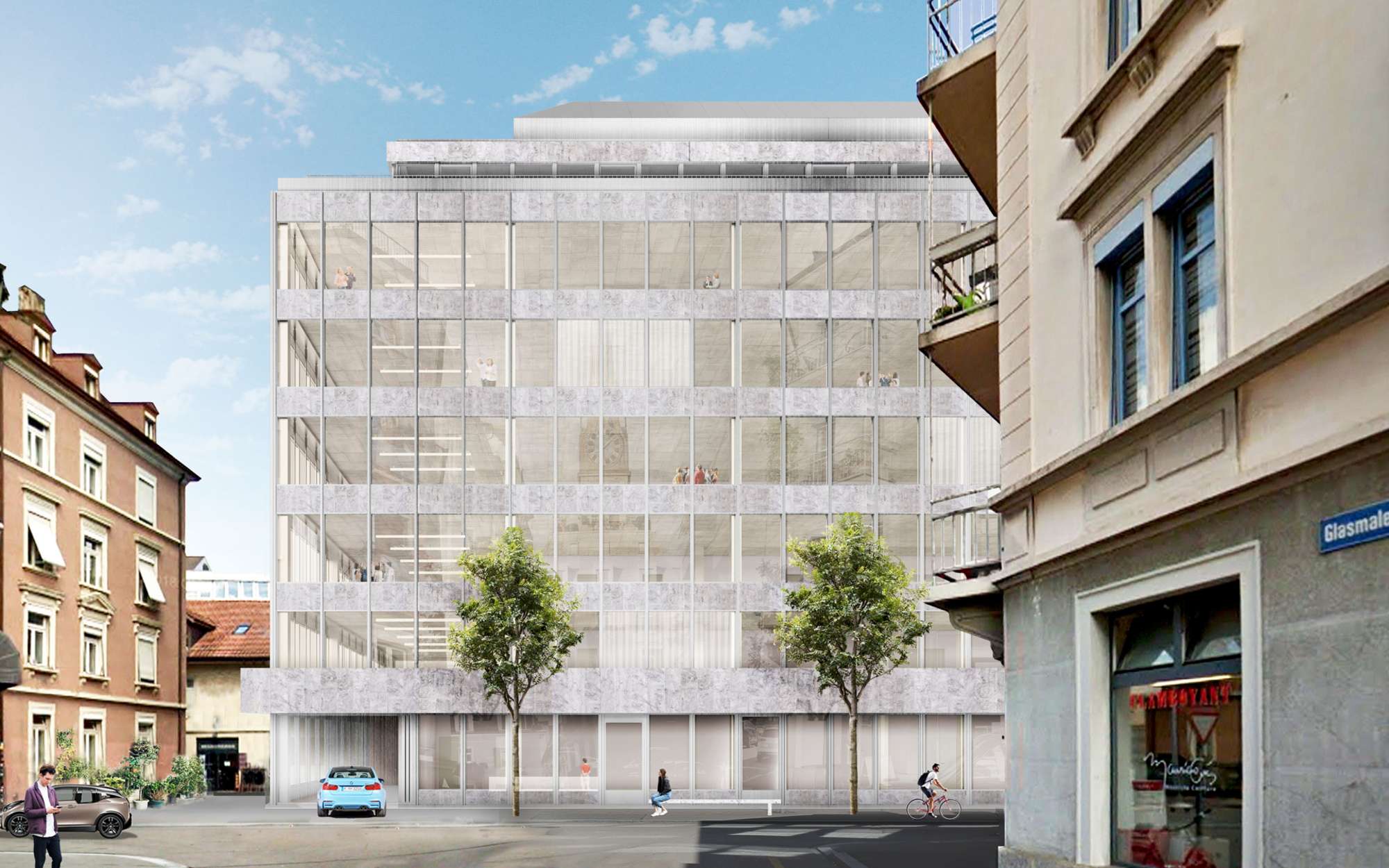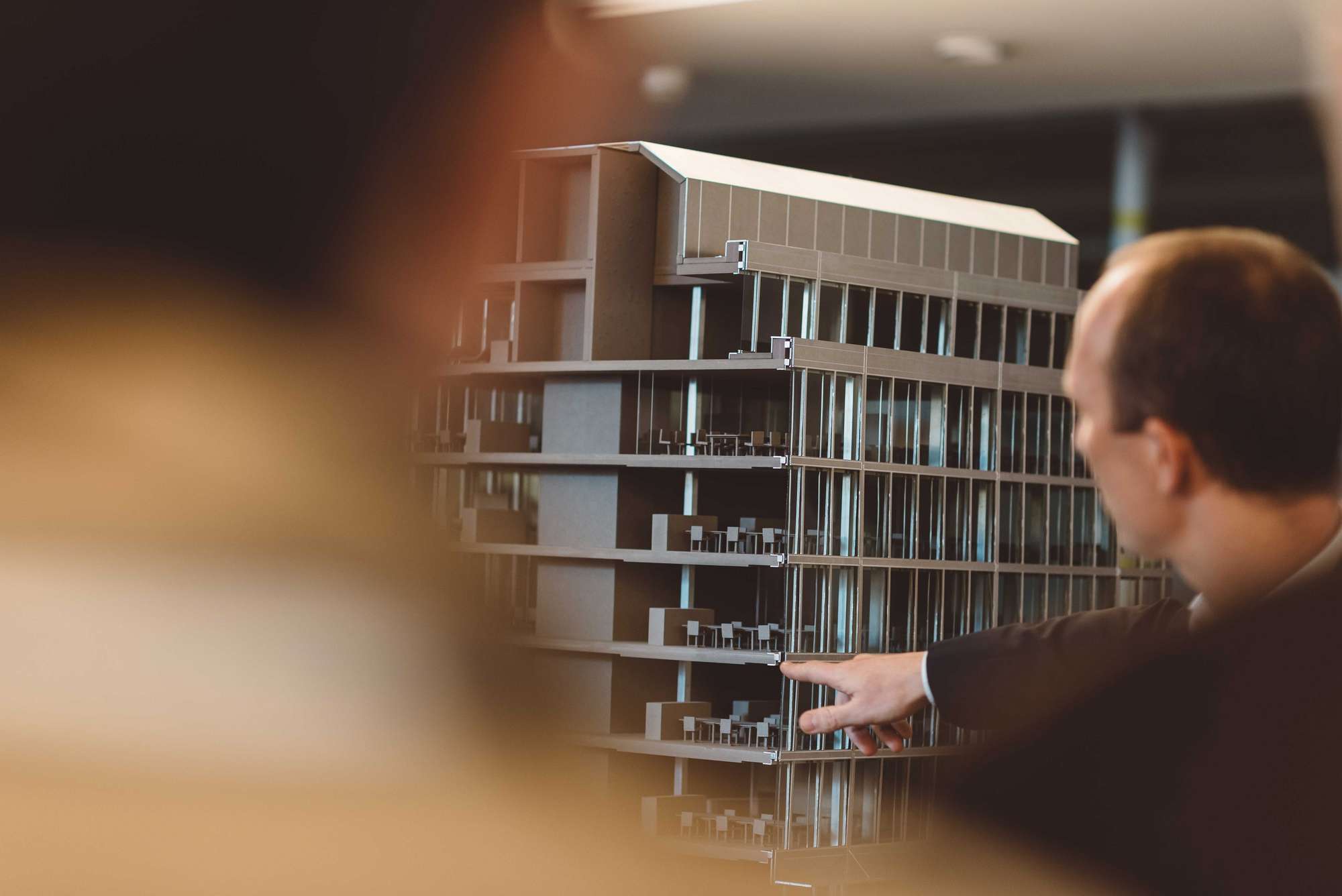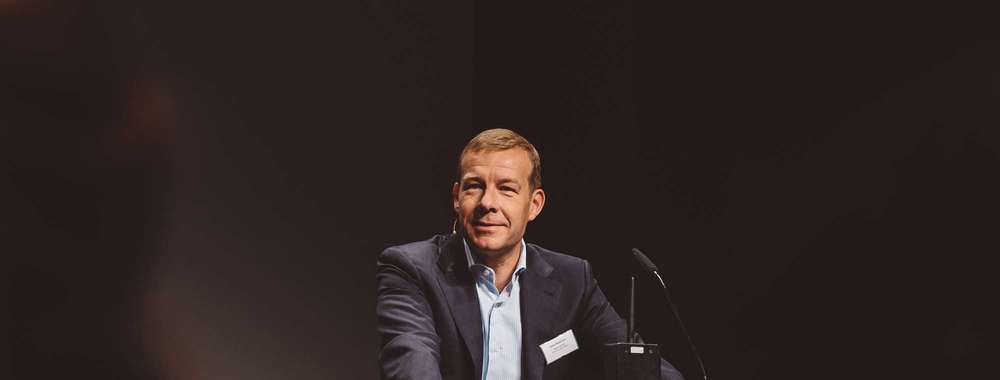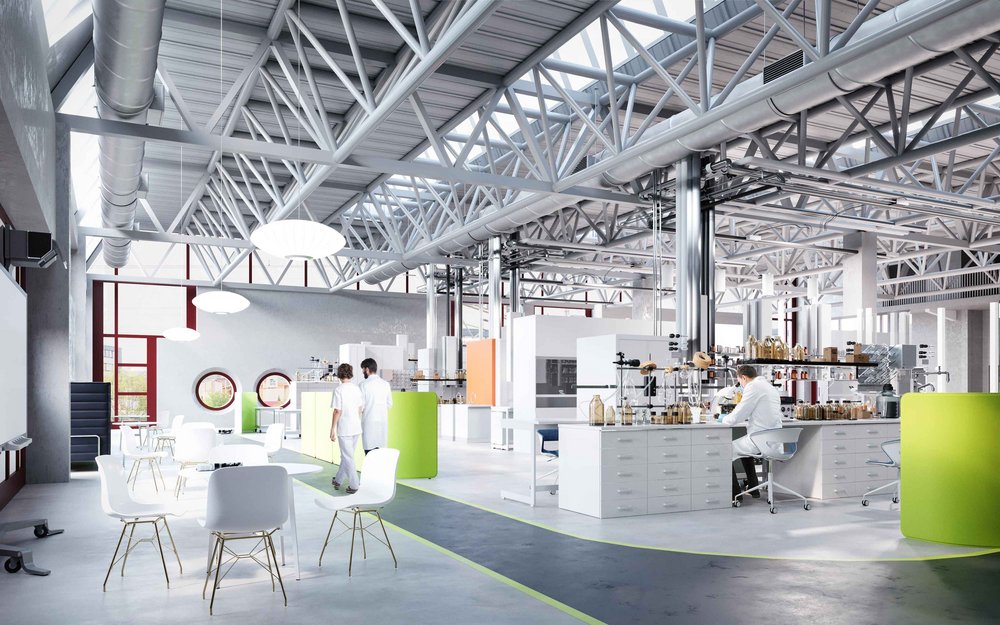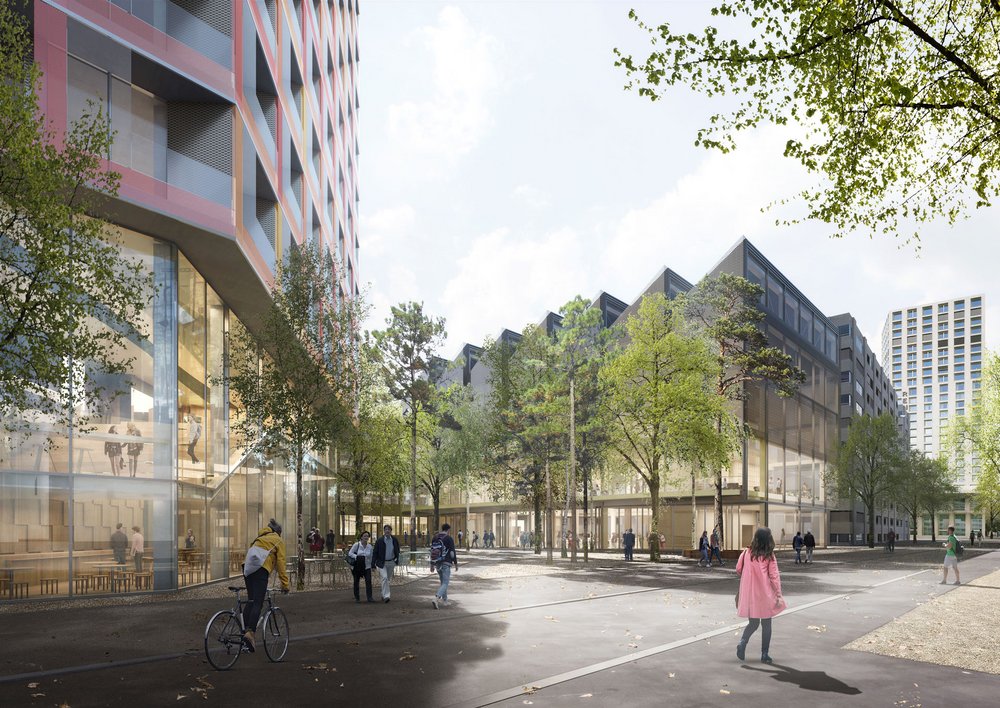Story Detail
«Our customers want first-class locations and spatial flexibility.»
What were the most important milestones that you achieved this year?
René Zahnd: Generally, in the first half of 2021 we were pleased when things started to open up again after the second wave of the pandemic and many of our tenants, as well as broad swathes of the economy, were able to resume their work again. And through our own efforts, we also managed to increase rental income, significantly reduce the vacancy rate, enhance our portfolio and strengthen our business model with the acquisition of the Akara Group.
Marcel Kucher, you became the new CFO of Swiss Prime Site in the middle of 2021. What were your milestones in your first six months?
Marcel Kucher: I’m very satisfied in my new role and the company has made me extremely welcome. We published excellent half-year results and hosted a successful investors’ day. However, by far the most significant achievement was the refinancing of a large portion of our balance sheet totalling CHF 2.6 billion.
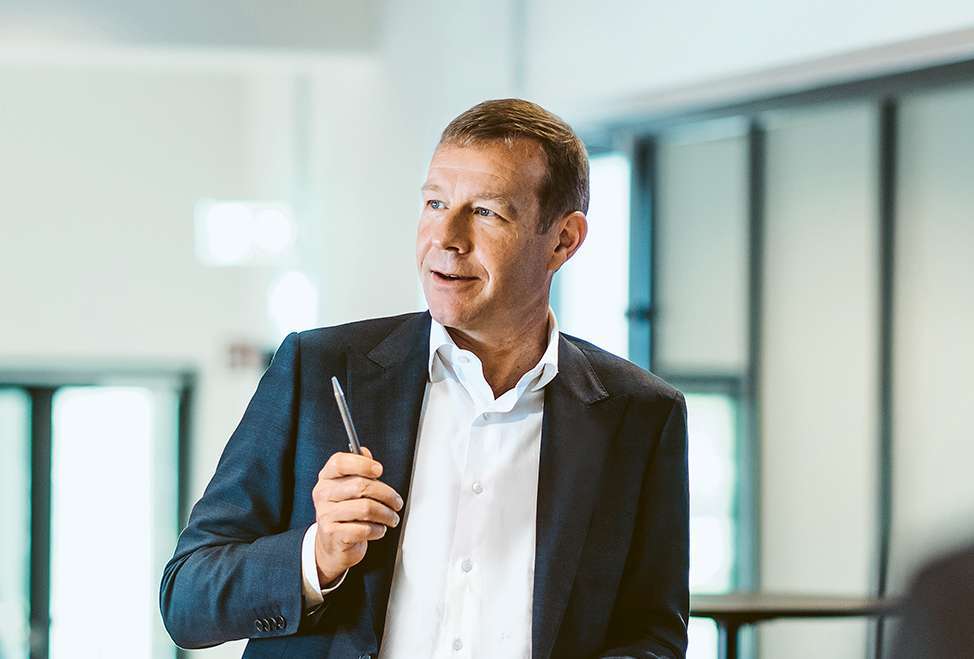
Let’s talk about the organisational changes first. There are three new members of the Executive Board. Can you tell us a bit more about them?
RZ: Given the size of our Executive Board, it sounds like a lot, but actually it was a structured planned renewal process, similar to the one that has taken place on our Board of Directors. Martin Kaleja has been leading Swiss Prime Site Immobilien since the beginning of the year and has given our property portfolio more strategic direction and definition. Anastasius Tschopp manages the group company Swiss Prime Site Solutions. Due to the increasing importance of real estate asset management, it was a logical step to appoint him to the Executive Board. Marcel Kucher took over the position of the CFO by mid-year and very quickly realigned our financing to an internationally comparable level.
Can you give us more details about the refinancing?
MK: On Capital Markets Day in 2021, we introduced our new capital management principles. The key principles include optimising the mix of equity and borrowed capital, increasing financial flexibility, ensuring homogeneity of financing sources, reducing refinancing risks and minimising financing costs. Building on these principles, we concluded a contract with eleven Swiss banking institutions for two unsecured credit facilities worth CHF 2.6 billion.
What do these facilities cover and what impact will they have?
MK: First, Swiss Prime is using CHF 1.8 billion to redeem the vast majority of its bank mortgages, which as at 30 June 2021 were mostly secured with real estate. In addition, we have secured a committed revolving credit facility (RCF) for CHF 0.8 billion. With this change, the proportion of properties not secured by mortgages in Swiss Prime Site’s entire portfolio will increase from just under 30 percent to more than 80 percent and will ensure that the vast majority of the providers of borrowed capital are treated equally. This will increase our financial flexibility and significantly reduce interest payments.
You mentioned reaching an international level. Can you expand on that?
RZ: Internationally, very few real estate companies are financed using mortgages. Through this significant optimisation of our financing structure, we are increasing our position in relation to both European and global competitors. In the medium term, this should also lead to an improvement in our credit rating.
«Beyond that, going forward we simply must build our real estate in such a way that it can serve as a source of reusable materials at the end of its useful life.»
René Zahnd, CEO
The link to sustainability is interesting. What’s that about?
RZ: A key aspect of the new financing is the fact that it also contributes towards our comprehensive sustainability goals. In addition to other parameters, the credit margin to be paid is impacted by any changes in our ESG rating. This enables Swiss Prime Site to further integrate financial and non-financial performance, building on the green bonds already issued.
Keyword flexibility: this was another year when you had to be flexible as a company. How strongly have you felt the effects of the pandemic in your business and in your figures?
RZ: Neither we nor our customers have remained unaffected by the pandemic this year. Where reasonable and necessary, we made concessions towards our tenants and this was reflected in positive feedback in our tenant survey. The hotel and gastronomy sector was particularly affected, with our city hotels – normally very popular for business trips – experiencing a significant downturn in business in the first half of the year. Overall, the pandemic cost us rent waivers of around CHF 5 million in 2021 (2020: CHF 9 million). The significant decline compared to 2020 shows that our tenants and the economy in general were significantly better at handling the pandemic in its second year.
What other feedback have you received from your tenants?
RZ: Firstly, and most importantly: the COVID-19 pandemic has not affected the demand for space. But it has accentuated various trends in the real estate market, with a greater customer focus on prime locations and a high level of spatial flexibility. The vast majority of our tenants have either the same or slightly increased spatial requirements. Furthermore, tenants have given Swiss Prime Site very good marks in the categories of overall satisfaction and loyalty. Issues such as health and sustainability have also become more significant. Like Swiss Prime Site itself, many of our tenants want to decrease their CO2 emissions both directly and indirectly. We are supporting this by making significant investments in our existing property portfolio.
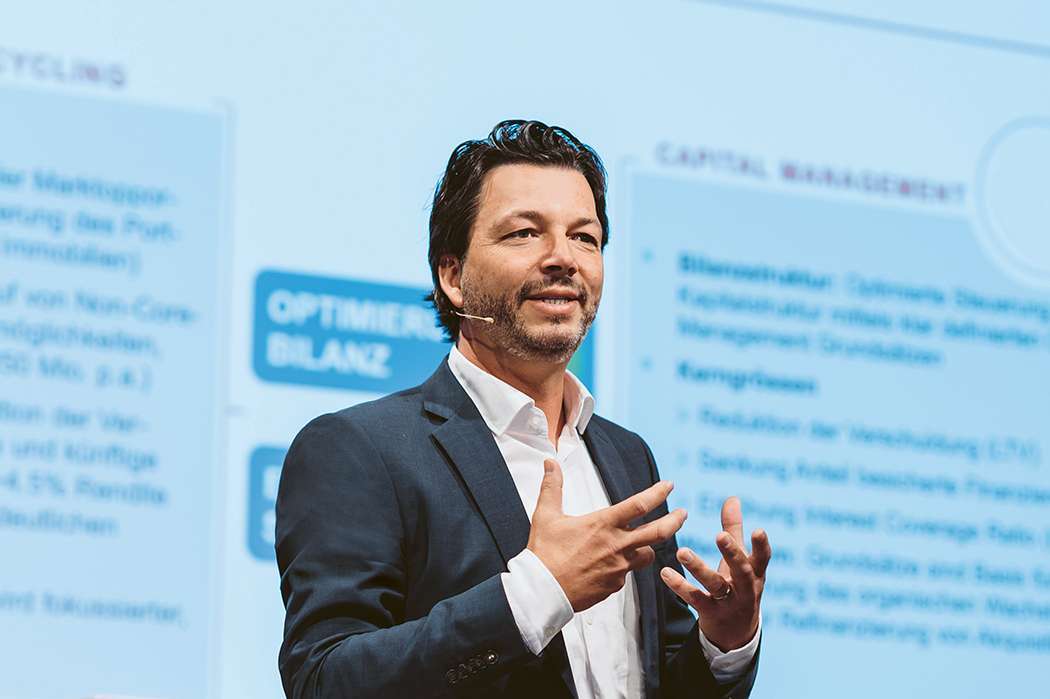
What do you understand by the term «spatial flexibility»?
MK: The pandemic has made it clear that our tenants and their employees want to use their spaces in a flexible way. This means that based on the situation, they decide with their employees when they will work at the company's offices. The result is that a lot fewer fixed workplaces are required. However, many of our tenants have told us that by contrast, they need more general-purpose spaces for discussions, meetings, workshops or just to get together, and that this is extremely important for their corporate culture and to promote innovation and teamwork. We therefore need to provide the right spaces in the right location and – as shown by the results of our survey last summer – we’re ideally placed to do that.
The low vacancy rates also show that the requirement for space is not dwindling. Are you expecting to see a further reduction here?
RZ: Over the course of the year, we significantly reduced the vacancy rate, from 5.1% in 2020 to 4.6%. Achieving this in the middle of a pandemic is down to the strong performance of Martin Kaleja’s team. At a time when the media in particular were talking about a trend towards smaller spaces, the team managed to let or re-let around 169 000 m². To put this figure in perspective: it’s more than four times the space in the Prime Tower and one of the highest rental figures of the last six years!
«This will increase our financial flexibility and significantly reduce interest costs.»
Marcel Kucher, CFO
Is there perhaps a misconception here that needs to be cleared up?
MK: Our tenant survey, vacancy rate and the square metres of new rentals send a clear message and show that our customers want to continue to offer their employees a central location where they can express their corporate culture and values, and work and develop together. So there’s no question of a trend towards a reduction in space requirements.
At the beginning, you mentioned that you managed to increase rental income through your own efforts. How did you do that?
RZ: Prices for offices and other spaces are stable. However, we know that location – fuelled by the pandemic – has become more important. In addition to contemporary surroundings, our customers want to offer their employees centrally located workplaces that are easy to get to. This is known as POI, or point of interest. Our first-class portfolio gives us an advantage here. Our efforts to offer more flexible spaces within our properties – such as co-working spaces – have also been very popular.
So, tenants are becoming more demanding in this aspect?
MK: The individuality of their spaces was important to our tenants even before the pandemic. What’s changed in the last two years is that tenants increasingly want additional services that they can draw on as required. These services can include rentable general-purpose spaces, meeting and workshop facilities as well as co-working spaces.
What does this mean for you?
RZ: We have responded to these demands and adjusted our product range. Adopting the motto «Space as a service», this year we expanded our collaboration with FlexOffice and memox. We also entered into a new partnership with Superlab Suisse. Ready-to-use laboratories are in high demand in certain industries. In Stücki Park in Basel, we worked with ZIP to launch our own co-working product onto the market. All of these developments contributed to a successful year for us.
Have your adjusted your project pipeline accordingly?
MK: That’s not been necessary. We simply made a few adjustments to our space planning, for example, in our Stücki Park project and the JED (new building). In those locations, we’ve planned in additional spaces for flexible use laboratories.
Was the implementation of the project pipeline impacted by the pandemic in any way?
RZ: No, fortunately not. All projects are on schedule. However, we are noticing at the moment that our general contractors are experiencing difficulties getting in some materials – such as wood – on time. So far, though, this has not impacted the progress of the projects.
One of your flagship projects is Müllerstrasse in Zurich. Has the new tenant insisted that the modification be in line with circular economy principles?
RZ: We count ourselves fortunate to be handing over such a prominent piece of real estate to an equally prominent tenant in 2023. Sustainability has been a top priority for us for a long time and we want to be carbon-neutral by 2040. We are very pleased that sustainability is also important for our tenants. So we have the opportunity to carry out the modification for Google based on circular economy principles. Beyond that, going forward we simply must build our real estate in such a way that it can serve as a source of reusable materials at the end of its useful life. We owe it to ourselves and to society to re-use materials and reduce our CO₂ emissions in this way.
Can you be more specific?
RZ: Well, the real estate and construction industry is responsible for a significant proportion of Switzerland’s CO₂ emissions – estimates put it at up to 40%. If, as a country, we want to be climate-neutral by 2050, then we need to build our real estate so that the materials can be separated and recycled at the end of their life cycle.
Is this kind of construction more cost-intensive?
MK: If you plan intelligently right from the start and work with specialists, the costs aren’t any higher. This is another situation in which the construction budget is more accurate than is generally the case with traditional construction projects. You also have to consider that at the end of their life cycle, the built materials have a value and can be re-sold.
You mentioned expanding your business model. Could you provide a bit more detail?
MK: We said last year that our portfolio of around CHF 12–13 billion in directly owned real estate had reached a very good size. The aim now is to further focus the portfolio and adjust it to suit the needs of our tenants. We have also set ourselves the goal of increasing our investment in the business of Real Estate Asset Management. At the start of 2021, our group company Swiss Prime Site Solutions submitted an application to FINMA for a fund licence which was granted. With CHF 144 million in equity, we were able to launch IF commercial as planned with an investment volume of CHF 220 million. Together with our investment foundation, we raised CHF 500 million in new money on the market in 2021. This is an impressive achievement.
At the end of the year, you completed an acquisition.
RZ: Yes, that’s right. At the end of the year, we announced the purchase of the fund provider Akara. This strengthens our position as a comprehensive real estate investment platform.
Can you explain the idea behind this concept?
RZ: With us, investors can invest either directly or indirectly in real estate or in products based on it. We provide real estate investment vehicles and real estate mandates for the full spectrum of investors, from qualified private investors through to institutional investors. The investment strategies differ depending on the types of use, regions and financing requirements, as well as the legal regulations for the vehicles and mandates. The services offered for the investment vehicles and mandates cover the full value creation chain along the real estate life cycle.
Why did you decide on an acquisition-based growth path?
RZ: The purchase of the Akara Group has significantly accelerated the organic growth achieved so far. The funds provider complements our group company Swiss Prime Site Solutions perfectly, and there are significant synergies. These include the merger of the fund management companies and the 100-plus new investors who we’ve welcomed to Swiss Prime Site.
What other positive impacts have resulted from the transaction?
MK: The capital requirement is manageable and the purchase results in immediate gains, both in terms of profit and value. In addition, the LPCI vehicle (limited partnership for collective investments) – a private equity real estate investment regulated by FINMA – provides us with an additional and innovative investment product.
Beside Swiss Prime Site Solutions, the Services segment includes also the group companies Wincasa and Jelmoli. How have they developed over the last financial year?
RZ: Wincasa is making considerable progress in the digitalisation of its business model. Next year and beyond, we are expecting to see a significant rise in profitability. Due to the pandemic and a long lockdown, Jelmoli had another difficult year in 2021. However, the management’s reaction to this was extremely agile, and substantially contributed to halving the losses of 2020.
What are you expecting in 2022?
RZ: In the Real Estate segment, we are pressing ahead at full speed with ongoing development projects and focusing our portfolio on prime locations and properties, with corresponding sustainability advantages. We therefore expect to record consistent growth and a further fall in our vacancy rate. We see considerable growth potential in real estate asset management. Following the acquisition and integration of the Akara Group, we are expecting an extremely dynamic and successful year. Our capital recycling approach (sale investment properties, reinvestment into developments) will ensure a steady balance sheet and we may even be able to improve some of our core figures.
The stakeholder-oriented 2021 reporting consists of the online report and other stock exchange-related chapters as PDF downloads, as well as the printed annual magazine «Review 2021».The magazine provides an insight into our sustainable corporate governance and shows how we have generated financial and non-financial value in 2021.
